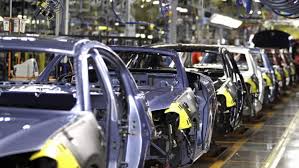
The blow from the retaliatory tariffs on U.S. steel on the powerful automotive industry of Canada is expected to be cushioned by the government’s customs provisions, believe trade lawyers and industry leaders awaiting the results of the impact.
When Canadian companies are able to show that products like steel are to be exported, they would get a refund or reduction on import duties according to decades old government programs. This could be enough to provide a cushion for the auto industry’s supply contracts that cover raw materials and parts that sometimes make several trips across borders a number of times before complete manufacturing of a vehicle.
Canada has clarified that Canadian exporters would be able to avail “duties relief” and “duty drawback” programs. This was announced by the country while imposing tariffs on a significant number of U.S. products earlier this month.
“That provision in the notice is overwhelmingly directed at the auto industry,” said Jesse Goldman, a trade lawyer at Borden Ladner Gervais. The Canadian retaliation would have “very significantly and very quickly” hurt the industry if there had not been the drawbacks, Goldman said.
About 85 percent of retaliatory tariffs paid by automakers could possibly be refunded by the duty relief programs because roughly that same percentage of vehicles that are manufactured in Canada were exported.
The Canadian government has been incentivized to provide some protection to the vehicle and parts makers from rising costs because about 136,000 are employed ion the vehicle manufacturing while about 22,000 in the steel sector according to Statistics Canada, despite the government having vowed to protect the interests of its steel and aluminum makers.
“These existing programs continue to be in place and any changes would be done in consultation with the relevant stakeholders,” federal Finance Department spokesman Jack Aubry said when asked whether the programs would continue.
Apart from auto parts makers Magna International and Linamar Corp, global companies like General Motors Co, Ford Motor Co, Fiat Chrysler Automobiles, Toyota Motor Corp and Honda Motor Co are operational in the country where they assemble vehicles.
Chief Executive of Linamar - Linda Hasenfratz has said that her company would significantly benefit from the drawback programs because almost all of the streel that is imported by the company is used for exports in one form or the other.
The impact of the tariffs was still being assessed by Honda, the company said. there were no comments from GM, Fiat Chrysler, Magna, Ford and Toyota.
There need to be more analysis before a comment can be made about whether the drawbacks could cushion the industry, said the Canadian Vehicle Manufacturers’ Association. The president of the organization - Mark Nantais said. “There are various options that could be used - that would be one of them.”
(Source:www.reuters.com)
When Canadian companies are able to show that products like steel are to be exported, they would get a refund or reduction on import duties according to decades old government programs. This could be enough to provide a cushion for the auto industry’s supply contracts that cover raw materials and parts that sometimes make several trips across borders a number of times before complete manufacturing of a vehicle.
Canada has clarified that Canadian exporters would be able to avail “duties relief” and “duty drawback” programs. This was announced by the country while imposing tariffs on a significant number of U.S. products earlier this month.
“That provision in the notice is overwhelmingly directed at the auto industry,” said Jesse Goldman, a trade lawyer at Borden Ladner Gervais. The Canadian retaliation would have “very significantly and very quickly” hurt the industry if there had not been the drawbacks, Goldman said.
About 85 percent of retaliatory tariffs paid by automakers could possibly be refunded by the duty relief programs because roughly that same percentage of vehicles that are manufactured in Canada were exported.
The Canadian government has been incentivized to provide some protection to the vehicle and parts makers from rising costs because about 136,000 are employed ion the vehicle manufacturing while about 22,000 in the steel sector according to Statistics Canada, despite the government having vowed to protect the interests of its steel and aluminum makers.
“These existing programs continue to be in place and any changes would be done in consultation with the relevant stakeholders,” federal Finance Department spokesman Jack Aubry said when asked whether the programs would continue.
Apart from auto parts makers Magna International and Linamar Corp, global companies like General Motors Co, Ford Motor Co, Fiat Chrysler Automobiles, Toyota Motor Corp and Honda Motor Co are operational in the country where they assemble vehicles.
Chief Executive of Linamar - Linda Hasenfratz has said that her company would significantly benefit from the drawback programs because almost all of the streel that is imported by the company is used for exports in one form or the other.
The impact of the tariffs was still being assessed by Honda, the company said. there were no comments from GM, Fiat Chrysler, Magna, Ford and Toyota.
There need to be more analysis before a comment can be made about whether the drawbacks could cushion the industry, said the Canadian Vehicle Manufacturers’ Association. The president of the organization - Mark Nantais said. “There are various options that could be used - that would be one of them.”
(Source:www.reuters.com)





